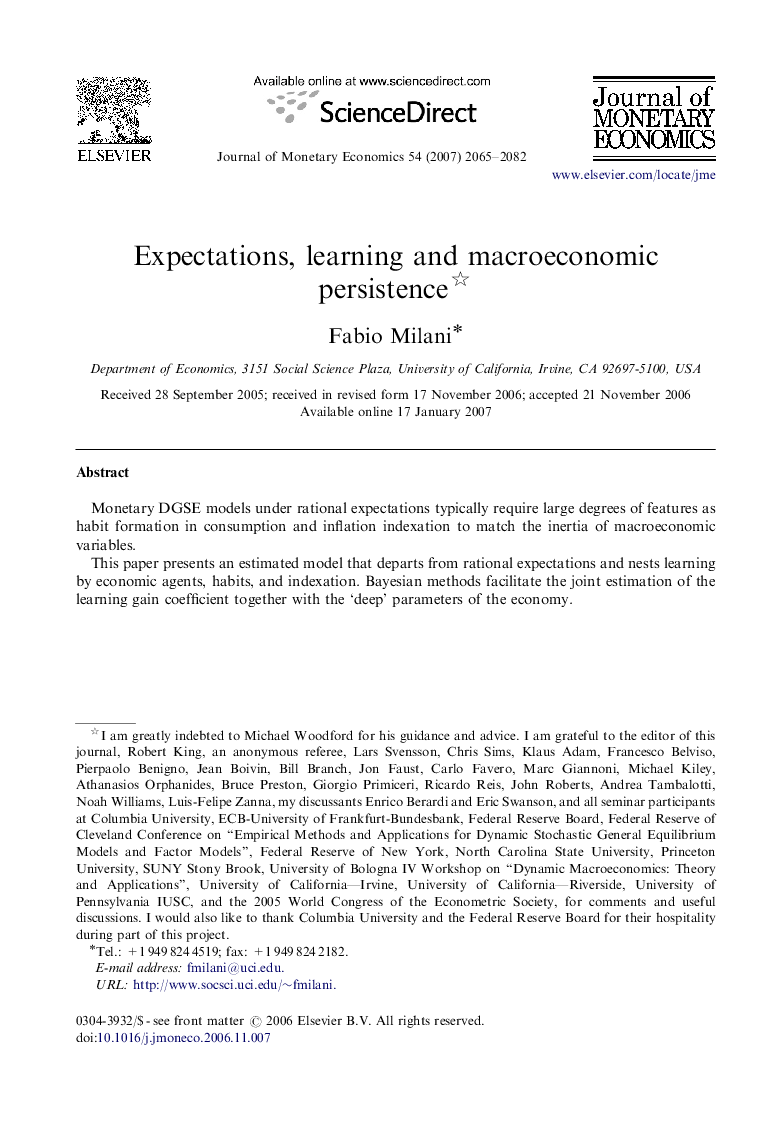| Article ID | Journal | Published Year | Pages | File Type |
|---|---|---|---|---|
| 967952 | Journal of Monetary Economics | 2007 | 18 Pages |
Abstract
Monetary DGSE models under rational expectations typically require large degrees of features as habit formation in consumption and inflation indexation to match the inertia of macroeconomic variables.This paper presents an estimated model that departs from rational expectations and nests learning by economic agents, habits, and indexation. Bayesian methods facilitate the joint estimation of the learning gain coefficient together with the ‘deep’ parameters of the economy.The empirical results show that when learning replaces rational expectations, the estimated degrees of habits and indexation drop closer to zero, suggesting that persistence arises in the model economy mainly from expectations and learning.
Keywords
Related Topics
Social Sciences and Humanities
Economics, Econometrics and Finance
Economics and Econometrics
Authors
Fabio Milani,
